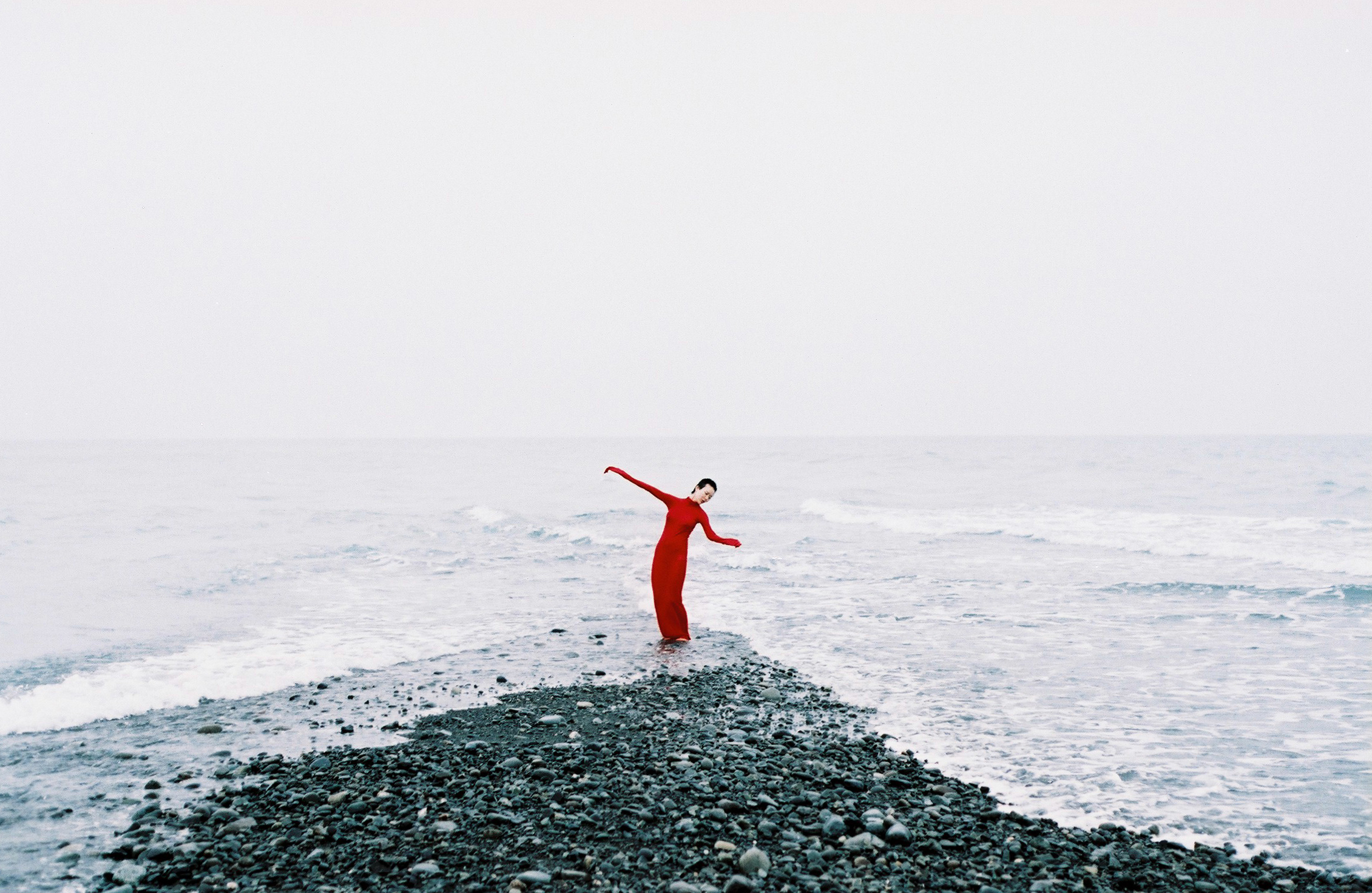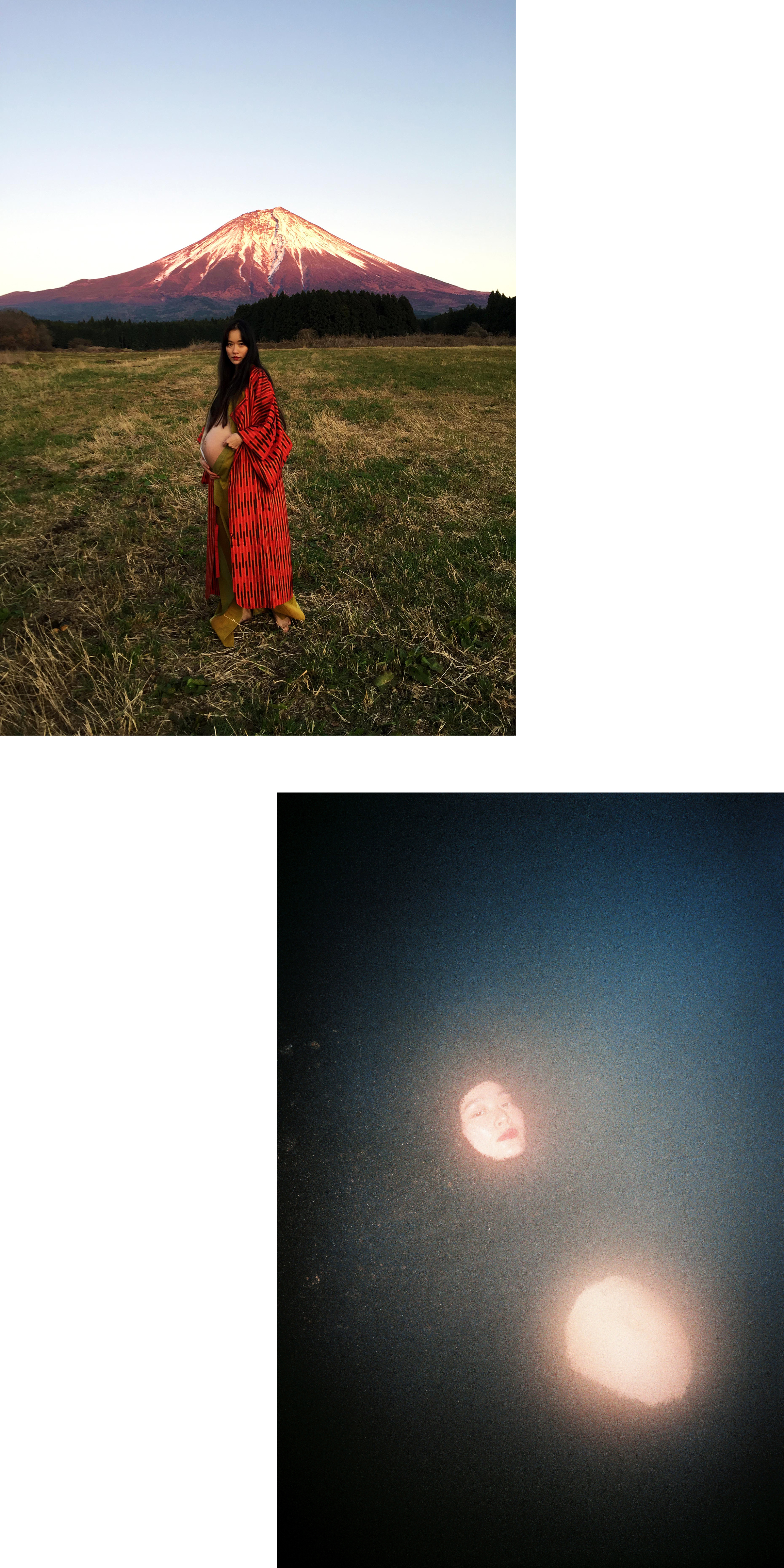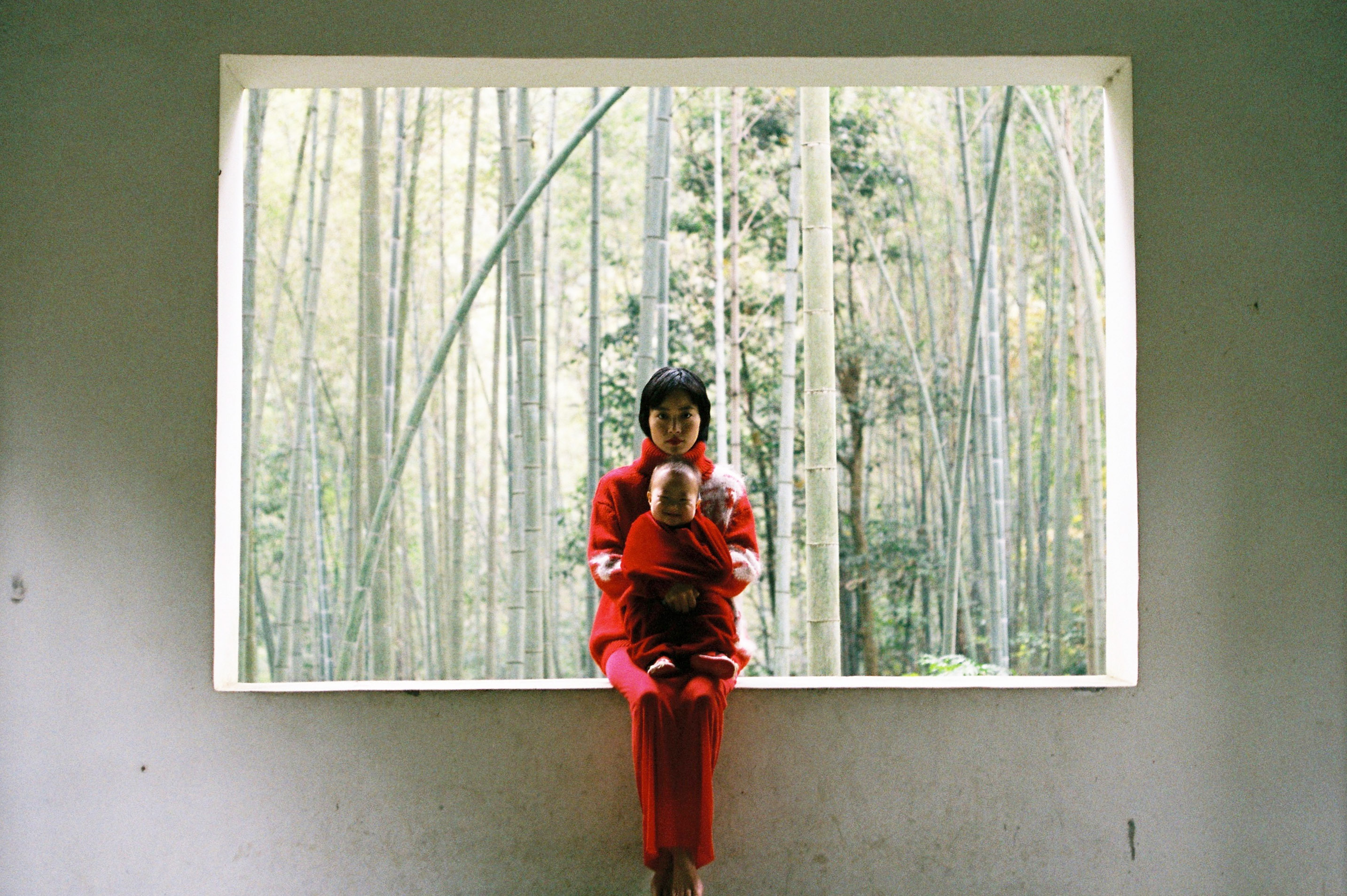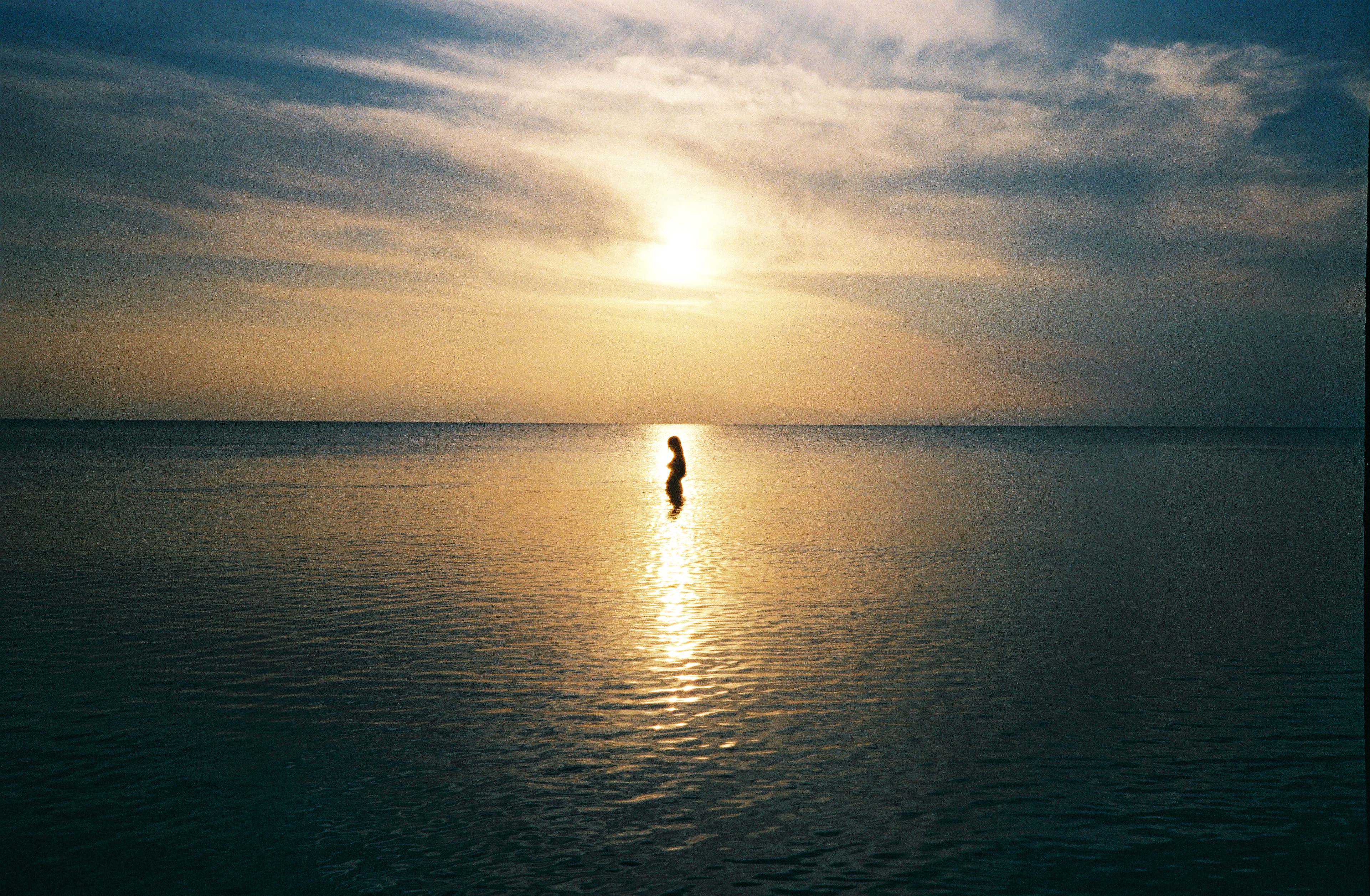This spring, VICE partnered with Fotografiska New York to present New Visions, an exhibition showcasing 14 emerging photographers from around the world who are changing the way we see. To highlight the work beyond the museum, we asked 14 of our favorite, fresh voices in culture to respond to the photos in writing. Here, prolific film critic Kristen Yoonsoo Kim reflects on the work of Chengdu, China-born photographer Yuan Yao. Read more from the New Visions series here, and learn how to visit the show at Fotografiska New York here.
My Korean mother is the most gentle person I know. She is exceptionally sweet and even-tempered—someone whose patience rarely wears thin. My mother used to tell me that she had a hard time scolding me because I would be harder on myself than she could be on me. She would delight in my As, but would comfort me if I got Cs. To this day, no one quells my fears and anxieties like she does.
But examples in pop culture will tell you otherwise about Asian mothers, particularly East Asian ones. My earliest encounter with a stereotypical Asian matriarch must have been The Joy Luck Club, Wayne Wang’s 1993 adaptation of Amy Tan’s novel—or maybe I had read the book first, for class. Either way, I was especially struck by the “Two Kinds” section, which tells the story of the mother who wants her daughter, Jing-mei, to become a prodigy, a sort of “Chinese Shirley Temple.” “Only two kinds of daughters,” says the mother. “Those who are obedient and those who follow their own mind! Only one kind of daughter can live in this house: Obedient daughter!” The little bit of Asian representation I saw on screen supported this idea of the perfection-obsessed matriarch—the other primary example being, of course, Mrs. Kim on Gilmore Girls. (My mother is also a “Mrs. Kim,” technically.) Lane’s mother was partly a comic relief because of how exaggerated her characterization was, but ultimately kind of a racist reinforcement of the stereotype; she hampered Lane’s creativity and barked even when Lane was being good.

Years later, we’d label this archetype the “tiger mom,” thanks to Amy Chua’s viral—though that’s not the term we used back then—2011 book, Battle Hymn of the Tiger Mother, about Chua’s strict upbringing of her children, the kind of parenting that prioritizes success over self-esteem. This idea of East Asian mothers has endured, appearing again in another major Asian-American ensemble film, Crazy Rich Asians, Hollywood’s first in 25 years since Joy Luck Club. In the film, Michelle Yeoh plays Eleanor, a rigid woman with exceedingly high expectations for her son Nick Young (Henry Golding). This kind of stern figure—typically in her 40s or 50s—sits on one end of the Asian woman spectrum in media; on the opposite side is a submissive, hypersexualized fantasy version that is also, weirdly, infantilized.
Nami, a photographic series from Chengdu, China-born artist Yuan Yao, makes this tacitly-approved spectrum apparent through its striking refusal to conform to it. For the series, Yuan photographed Nami, a Japanese woman he had met through a close mutual friend, throughout her pregnancy—often outdoors, often in her hometown of Fuji. Nami had long intended for the mutual friend to photograph her while she was pregnant, but by the time it finally happened, the friend was gone—so Yuan stepped in. To take the photos, the two travelled throughout Japan, dwelling in both the magic and melancholy of the circumstances that brought them together.

In many of the photos, Nami is cloaked in not much more than nature—her belly gently resting on a rock, her body submerged in water, her torso curtained by ferns. She looks strong yet serene, confident in her role as a mother, but not overpowering or controlling. “I perceived motherhood as something magnificently dynamic and profound,” Yuan said in his artist statement. “A phenomenon that brings forth another dimension of love and strength.” That’s the version of Asian motherhood familiar to me—in person, but not on screen. Care and resilience and, sometimes, a bit of sadness, in symbiosis, mixed into a mysterious concoction that would seep through any existing cinematic mold.
I think about my mother, who lost a few babies during pregnancy. I’m her only child, the sole surviving one. When she carried me in her stomach, there must have been a pit of fear occupying the space with me. I imagine the overwhelming joy I must have brought her when I came out breathing and healthy, with all 10 fingers and toes, but also the grief she must have felt, reminded of past losses. This mother contains multitudes.

Over time, more complicated depictions of East Asian mothers are finding their way into American pop culture. I found one refreshing exception in the 2019 comedy series Pen15. In the penultimate episode, one-half of the Hulu show’s teen BFF duo, Anna, stays over at her friend Maya’s house while her parents are away on a retreat. Maya’s mother, a Japanese woman, is a kind, welcoming hostess who mothers Anna in that short span of time, to Maya’s delirious envy.. Of course Maya’s mother loves Maya more, but she gives Anna special treatment because she’s a guest—a quintessentially Asian maternal instinct, if there actually is one.
Looking away from Asian-American representation and towards stories from Asia, you find softer, more generous mothers. The Japanese filmmaker Yasujiro Ozu has touched me with his father-daughter films (such as Late Spring and Early Summer), but he shoots his mothers just as tenderly. In his 1936 film The Only Son, a mother sacrifices all she has, working at a factory to support her son’s education. Mikio Naruse allows for a nuanced matriarchal depiction in his 1956 black-and-white drama Flowing, an everyday depiction of geishas in the mundane part of their lives and the generational vocation it becomes for one mother and daughter duo. The Korean filmmaker Hong Sang-soo, who is usually interested in romantic encounters between men and women, also shoots a mother-daughter relationship of a low-key kind in his short film List.

Perhaps it’s simply that, as the model minority myth has come to define Asian-American narratives, portrayals of Asian-American mothers have hardened in the process. The obvious truth, though, is that immigrant mothers of all stripes are much more than their aspirations in the U.S.
The mothers mentioned above all contain a little bit of my own, as does Nami under the lens of Yao. I don’t think I’ve ever even seen photographs of my mom while she was pregnant with me. I’m sure she, too, was beautiful and glowing and serene.
from VICE https://ift.tt/2THBzdR
via cheap web hosting
No comments:
Post a Comment